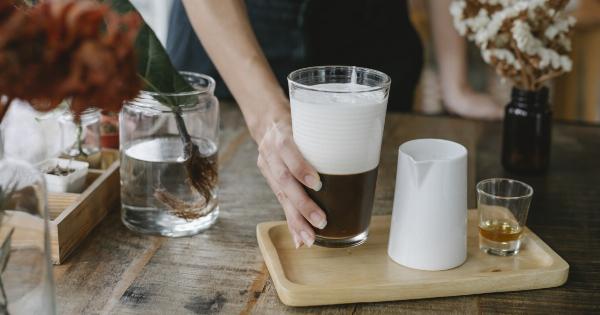Alcohol and caffeine are two of the most widely consumed beverages in the world. Both beverages can affect the heart, but in different ways.
Alcohol can cause atrial fibrillation, also known as AFib, while caffeine can increase heart rate and blood pressure. AFib is a condition where the heart beats irregularly and can lead to stroke or heart failure if left untreated.
How Alcohol Affects the Heart
Alcohol can affect the heart in several ways. It can cause an irregular heartbeat, known as atrial fibrillation (AFib). AFib is a condition where the heart beats irregularly and can lead to stroke or heart failure if left untreated.
Alcohol can also weaken the heart, leading to heart failure.
Studies have found that drinking even moderate amounts of alcohol can increase the risk of AFib.
A study published in the Journal of the American College of Cardiology found that drinking more than four drinks per day was associated with a 37 percent increase in the risk of AFib. Another study found that drinking more than two alcoholic beverages per day was associated with a 20 percent increase in the risk of AFib.
It’s important to note that not everyone who drinks alcohol will develop AFib. The risk of AFib depends on several factors, including the amount and frequency of alcohol consumption, age, sex, and overall health.
How Caffeine Affects the Heart
Caffeine is a stimulant that can increase heart rate and blood pressure. It can also cause palpitations, or a feeling of skipped or fluttering heart beats. However, caffeine has not been shown to cause AFib.
Studies have found that moderate caffeine consumption, defined as 300 milligrams per day, does not increase the risk of heart disease or arrhythmia. This amount is equivalent to about three cups of coffee per day.
However, individuals who are sensitive to caffeine may experience palpitations or other symptoms with even smaller amounts of caffeine.
The Relationship Between Alcohol and Caffeine
Many people often drink alcohol and caffeine together, such as in cocktails like a vodka Red Bull or Irish coffee. However, combining alcohol and caffeine can be a dangerous combination.
Drinking alcohol and caffeine together can lead to a false sense of alertness. This can lead to risky behavior, such as driving under the influence or engaging in other dangerous activities.
Additionally, the caffeine in these drinks can mask the effects of alcohol, leading individuals to drink more than they normally would, increasing their risk of alcohol-related harms.
The Effects of Alcohol and Caffeine on Vaginal Fibrillation
Vaginal fibrillation is a type of AFib that occurs in the upper chambers of the heart. It can cause symptoms like palpitations, dizziness, and fatigue.
While alcohol consumption has been shown to increase the risk of vaginal fibrillation, the relationship between caffeine and vaginal fibrillation is less clear.
One study found that caffeine consumption may be associated with a higher risk of vaginal fibrillation in individuals with a certain genetic mutation. However, this finding needs to be confirmed in larger studies before any conclusions can be drawn.
Preventing Vaginal Fibrillation
Preventing vaginal fibrillation involves making lifestyle changes that can reduce the risk of developing the condition. These include:.
- Limiting alcohol consumption to moderate levels, defined as no more than one drink per day for women and two drinks per day for men.
- Reducing intake of caffeine by avoiding coffee, tea, and other caffeinated beverages or limiting intake to no more than 300 milligrams per day.
- Managing stress through techniques like meditation, yoga, or deep breathing exercises.
- Engaging in regular physical activity, such as brisk walking, biking, or swimming.
- Maintaining a healthy weight through a balanced diet and regular exercise.
Conclusion
Overall, alcohol and caffeine can both affect the heart in different ways. Alcohol consumption can increase the risk of developing atrial fibrillation, while caffeine can increase heart rate and blood pressure.
Combining alcohol and caffeine can be a dangerous combination, leading to risky behavior and increasing the risk of alcohol-related harms.
While the relationship between caffeine and vaginal fibrillation is less clear, making lifestyle changes like limiting alcohol and caffeine consumption, managing stress, and engaging in regular physical activity can reduce the risk of developing the condition.






























